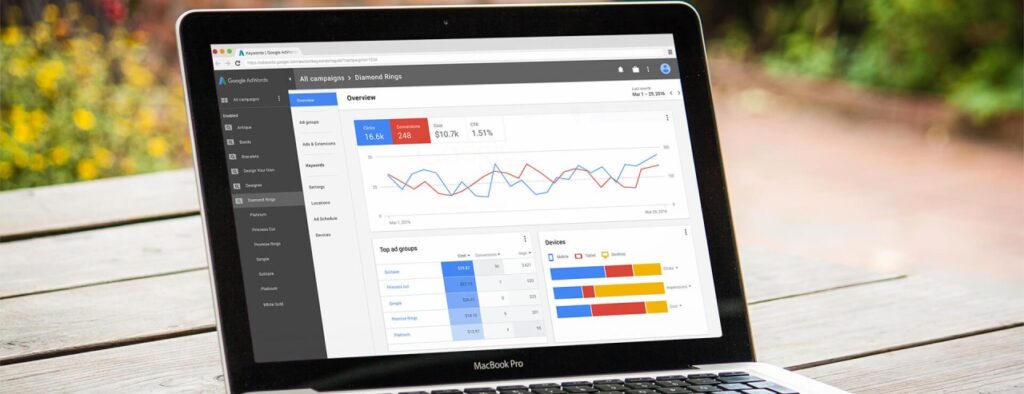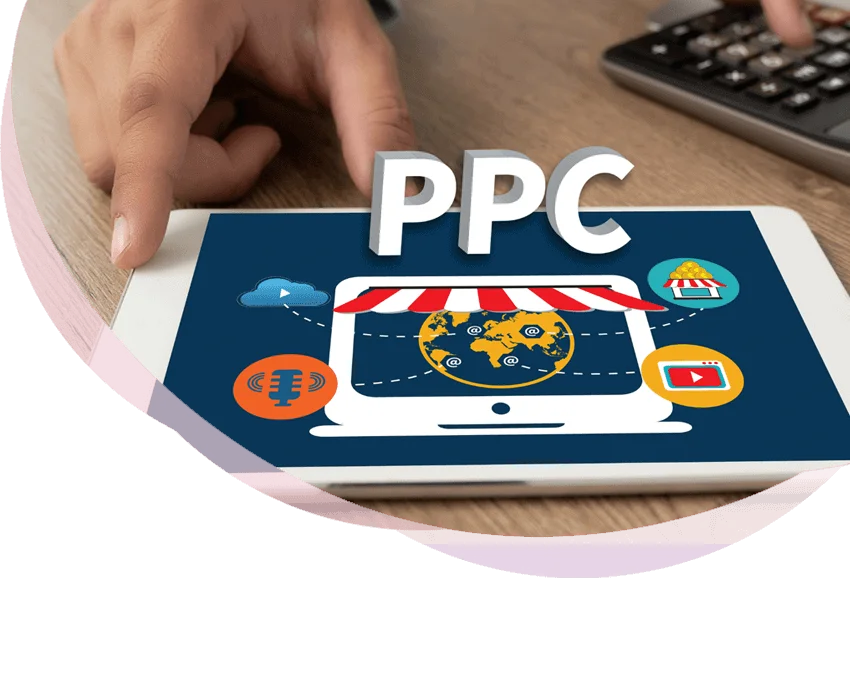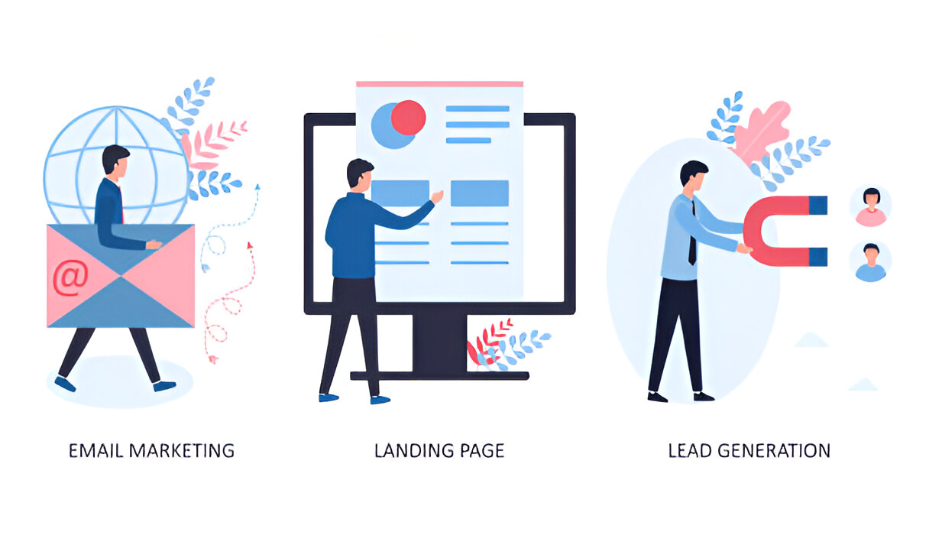If you’re a small or medium-sized business (SMB) owner in Cincinnati, you’ve probably wondered how much to spend on Pay-Per-Click (PPC) advertising. Whether you’re just starting your PPC campaign or refining your approach, understanding how much to allocate to your budget is crucial for success. Properly estimating your PPC spend can help you maximize your advertising dollars, reach the right local audience, and achieve significant return on investment (ROI).
In this blog, we will break down PPC costs in Cincinnati, how to estimate your budget, and provide actionable tips to help you optimize your Google Ads campaigns.
1. What Is PPC and Why It Matters for Small Business Success
PPC (Pay-Per-Click) advertising allows businesses to show ads on platforms like Google Ads and Microsoft Ads, paying only when someone clicks on their ad. This type of digital advertising is ideal for businesses seeking to generate immediate traffic, especially if you are targeting a local market like Cincinnati.
Why PPC Matters for Cincinnati Businesses:
- Local Targeting: You can fine-tune your ads to only target users in Cincinnati or even specific neighborhoods, making it easier to reach potential customers.
- Quick Results: Unlike SEO, which can take months to see results, PPC delivers immediate traffic and leads.
- Budget Flexibility: You can adjust your PPC budget based on performance, allowing you to scale your campaigns as your business grows.
2. Factors That Influence Your PPC Budget
Setting your PPC budget is not a one-size-fits-all approach. Various factors can affect how much you should spend:
Industry Competition
The more competitive your industry in Cincinnati, the more you’ll likely need to spend. For example:
- Real estate and legal services have high competition and high costs per click.
- Local services, such as plumbing, electricians, or cleaning services, typically have lower costs.
PPC ads for competitive industries could cost anywhere from $10 to $50 per click, while local services might be $1 to $5 per click. Be prepared to invest more if you’re in a competitive space.
Ad Bidding Strategy
Google Ads operates on an auction system where you bid on specific keywords. The higher you bid, the better your ad position, but you should also be mindful of your Quality Score, which is based on the relevance of your keywords, ad copy, and landing page. A higher Quality Score can reduce your CPC and help you get more value for your budget.
Location Targeting
PPC campaigns allow you to target specific geographic locations. In Cincinnati, you can narrow your target audience to specific zip codes, districts, or even neighborhoods, which ensures that you’re spending your ad dollars only on relevant local traffic.
Seasonality and Timing
Your business may have seasonal peaks where PPC spend should be higher, especially if you’re targeting local events or holidays. If your business provides services during high-demand times (like home heating during winter or AC repair in summer), you may want to increase your PPC budget during these peak periods.
3. Smart Google Ads Budgeting for Small Businesses
It’s important to set a reasonable PPC budget that matches your business goals. The key is finding the balance between spending enough to compete but not overspending.
Budget Range for Cincinnati SMBs
Most small businesses in Cincinnati should start by allocating between $500 – $2,000 per month for Google Ads. Here’s a breakdown by industry:
- Local Service Providers (Plumbers, Electricians, etc.): $500 – $1,500 per month.
- Professional Services (Lawyers, Accountants, etc.): $1,500 – $3,000 per month.
- E-Commerce or Retail: $1,000 – $5,000 per month, depending on the competition.
If you’re just starting out, begin with a smaller budget to test various keywords, locations, and ad variations. Gradually increase your spend as you analyze the performance.
Estimating Return on Investment (ROI)
It’s important to measure ROI to assess whether your PPC budget is paying off. A typical rule of thumb is that for every $1 spent on PPC, you should aim to make $2 to $3 in revenue. This can vary based on factors such as conversion rate, the quality of your landing pages, and how well your ads are tailored to your audience’s needs.
4.Tips for Optimizing Your PPC Budget
Once you have a basic understanding of your PPC costs, it’s essential to fine-tune your strategy. In the competitive landscape of Cincinnati internet marketing, optimizing your pay-per-click campaigns ensures you’re reaching the right audience while maximizing your return on investment.
Here are some tips to get the most out of your budget:
Focus on Long-Tail Keywords
Long-tail keywords (such as “affordable plumber Cincinnati” or “emergency HVAC repair Cincinnati”) are often less competitive, meaning they come with lower CPCs and can deliver highly relevant traffic. They also have higher conversion rates because they align more closely with what searchers are looking for.
Improve Your Quality Score
Google rewards advertisers with a higher Quality Score by reducing their CPC and improving ad rank. To improve your Quality Score:
- Ensure your keywords are relevant to your ad copy.
- Provide a user-friendly landing page that is consistent with your ad.
- Increase your Click-Through Rate (CTR) by making your ads more compelling and relevant.
Use Negative Keywords
To avoid wasting money, make sure you add negative keywords to your campaign. For instance, if you’re a Cincinnati plumber, you might want to exclude terms like “free plumbing services” or “cheap plumbing” to avoid attracting users who are not likely to convert.
Set Up Conversion Tracking
Set up conversion tracking to measure the performance of your ads. This will help you identify which keywords, ads, and landing pages are generating the most conversions, allowing you to allocate more budget to the best-performing elements of your campaigns.
Test and Optimize Your Ads Regularly
PPC campaigns need to be constantly optimized. Regularly monitor your ad performance, make adjustments to your keyword bidding, and test different variations of your ads to improve results. Try A/B testing with different ad copies to see which resonates best with your target audience.
Conclusion
Determining how much to budget for PPC in Cincinnati requires understanding the competition, targeting, and your business goals. By focusing on the right keywords, improving your Quality Score, and optimizing your campaigns, you can achieve great results even with a modest budget. Remember, testing and monitoring your campaigns regularly will allow you to make data-driven decisions that optimize your ROI.
If you’re unsure how to start or need assistance with your PPC campaigns, contact us today for a free consultation and let our experts help you optimize your budget for maximum results!
Contact Us Today!
Have you any questions about PPC campaigns or need assistance setting up your budget? Contact us now!
Frequently Asked Questions (FAQs)
What is the average cost of PPC ?
The cost-per-click (CPC) in Cincinnati can vary greatly based on the industry. For service-based businesses, the CPC can range from $1 to $5, whereas competitive industries like law or real estate may see $10 to $50 per click.
How do I lower my PPC costs?
Lower your PPC costs by improving your Quality Score, focusing on less competitive long-tail keywords, using geo-targeting, and regularly optimizing your ads to improve performance.
How much should a small business spend on PPC ?
A small business in Cincinnati should allocate anywhere from $500 to $2,000 per month for Google Ads, depending on competition and industry. Start small and scale up as you see positive results.
Can PPC help me compete with larger companies ?
Yes, PPC can be a powerful tool for SMBs in Cincinnati to compete with larger companies. By targeting specific keywords and using local targeting, you can attract highly relevant customers and generate qualified leads.





